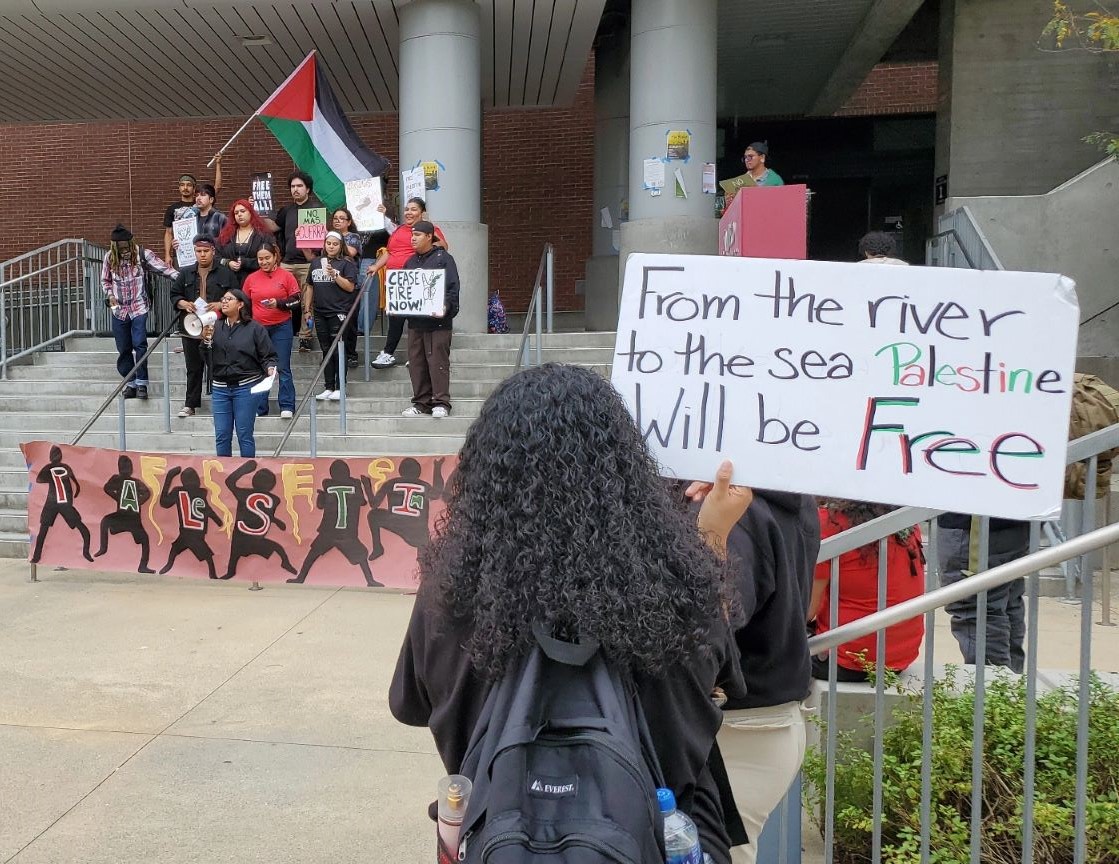Many people see me smiling and saying hello to everyone I meet. To them, I’m just a happy student rushing to my next class.
What they don’t know is the hell I live virtually every day. Contrary to what the public sees, government policies seem to be set up to crush people like me trying to get ahead.
The government does not sufficiently support poor mothers who want to get a college degree so they can earn enough to live with dignity with their families.
I am a 45-year-old divorced mother of three, struggling every day to get my education to get a good job to support my daughters, ages 15, 9 and 6.
I’m also an immigrant who struggles every day to understand American culture and the English language.
I a student at City College, where I have already earned two associate degrees with honors. I’m also a student at the small private Springfield College. I am carrying 15 units, studying for two other degrees to give myself the broadest base possible to get a good-paying job, so I can give my kids peace of mind as they grow up.
Because my income is very low, I qualify for food stamps and subsidized child care, although these benefits are always at risk of disappearing because of budget cuts.
I work part-time for the San Diego Labor Council, but that work is week to week and I don’t know if I will have a job the following week. I had to give up a class in order to keep my job.
My rent is $1,330 and I earn less than $1,000 a month, so I battle every day to earn any money that can help me make basic payments for gas, insurance, phone, and so on. I clean houses and I take care of an elderly person. This week I took a survey that paid $5, which to me was gas money.
I have pawned 15 items of jewelry. I’m always thinking what I can pawn next to pay the rent.
I am desperate to have a job, like many of the people on public assistance in the county.
According to an article in California Watch that ran Aug. 22, “unemployment among women rose from 11 percent to 11.4 percent between July 2010 and July 2011.”
It’s a myth that most of these people live in luxury and are exploiting their benefits.
In fact, “less than 3 percent of people receiving public aid in the county were found to be committing fraud,” according to a participatory action research project done by the Supportive Parents Information Network and the Caring Council of San Diego guided by Professor Bill Oswald, of Springfield College, on Jan. 2010.
At the public assistance offices, you can see all types of people, not just like the stereotypical homeless people. They want to work. There are simply are no jobs.
The government needs to help create jobs for people like me, who want to build on what they’ve studied. And they should take advantage of all stimulus funds that would have created jobs.
In Congress, there’s a big fight over jobs programs. To me, the most important thing the government can do for people who are struggling is create jobs.
Once you have a job, one that gives you enough to live off of, then you can have a “regular” life. One where you don’t have to spend all day inside your apartment with your children, because you don’t have any money to go anywhere else.
We can’t go walking around in Balboa Park because I don’t have the gas money.
Government, also, needs to do a better job of processing all paperwork related to getting help when you are poor. The County is highly inefficient in processing assistance applications. This is so important at times of economic crisis like now.
Since the new eligibility determination system was implemented, people like me have to file documents over and over again because there is no one single person in charge of the case.
I have received many Notices of Actions with incorrect information that have taken me hours to fix and used up my valuable gas and my time.
That’s not to mention the stress that it has caused me and my daughters.
I am not a “welfare queen.”
The public aid I receive keeps me surviving day to day while I get an education. But it is the most humiliating experience of my and my daughters’ lives.







